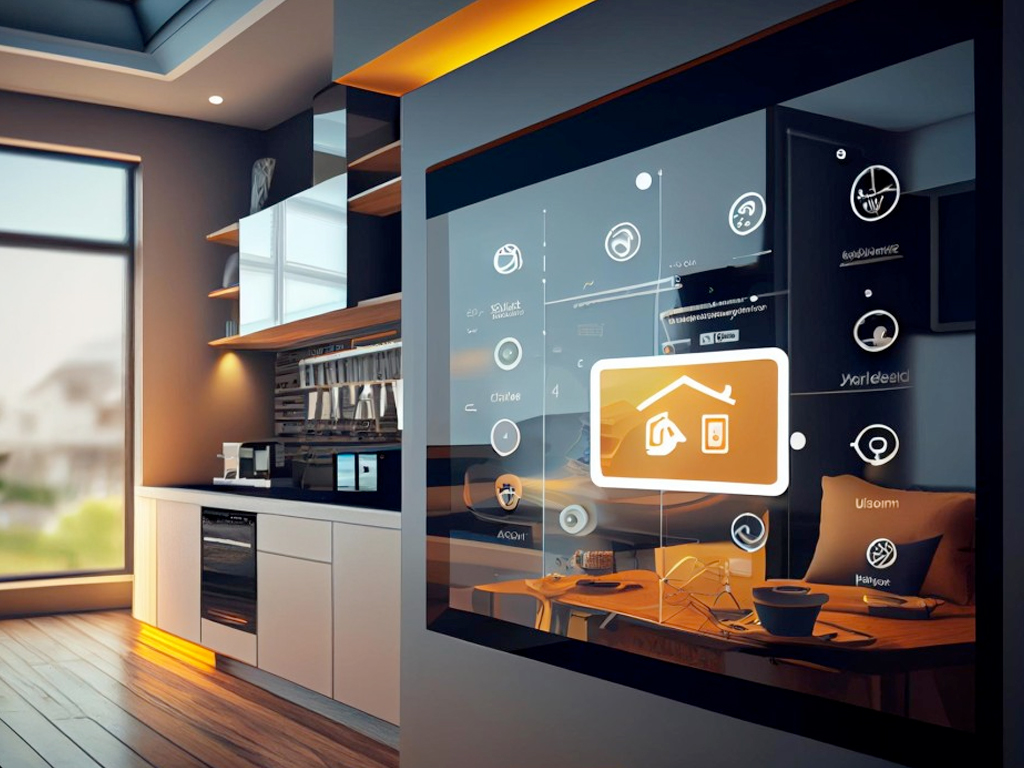In recent years, the home services industry in the United States has seen significant transformation. From home cleaning and plumbing to landscaping and HVAC maintenance, technology is reshaping how service providers operate and how customers engage with them. With advancements in smart home technology, artificial intelligence, and app-based platforms, the industry is poised for even greater innovation in the coming years. Here’s a closer look at how technology is expected to impact home services and what it means for homeowners and service providers alike.
1. Smart Home Integration
The proliferation of smart home devices has already begun to influence the home services landscape. Products like Amazon Alexa, Google Nest, and Ring have made it easier for homeowners to monitor and manage their homes remotely. In the future, these devices will play a more active role in facilitating home services:
Predictive Maintenance: Smart sensors will detect issues like leaks, HVAC inefficiencies, or electrical problems before they become major concerns. Service providers could receive alerts directly, enabling them to offer proactive maintenance.
Automated Scheduling: Integration with smart devices will allow homeowners to schedule services automatically. For instance, a smart lawn care system could notify a landscaping service when it’s time for mowing or fertilization.
2. AI and Machine Learning
Artificial intelligence (AI) and machine learning (ML) are set to revolutionize customer interactions and operational efficiency in home services:
Personalized Recommendations: AI algorithms can analyze homeowners’ preferences and usage patterns to suggest tailored services. For example, a homeowner with a pool may receive maintenance reminders based on seasonal trends.
Virtual Assistants: AI-powered chatbots and virtual assistants can handle customer inquiries, book appointments, and provide real-time updates, enhancing the overall customer experience.
Optimized Routes: For service providers, ML can optimize travel routes for technicians, reducing fuel costs and increasing efficiency.
3. On-Demand Service Platforms
The gig economy has already brought about platforms like TaskRabbit, Handy, and Thumbtack, which connect homeowners with vetted professionals for various tasks. In the coming years, these platforms will become even more sophisticated:
Enhanced Transparency: Real-time tracking of service professionals, detailed reviews, and transparent pricing will build greater trust.
Subscription Models: Platforms may offer subscription services where homeowners can bundle multiple needs, such as monthly cleaning and seasonal maintenance, into one convenient package.
Integration with Financing: Flexible payment options, including buy-now-pay-later plans or micro-loans for major repairs, could become standard.
4. Robotics and Automation
The rise of robotics and automation will have a profound impact on labor-intensive home services:
Robotic Cleaning: Autonomous vacuum cleaners and lawn mowers are just the beginning. Expect to see robotic window cleaners, gutter cleaners, and pool maintenance systems become more commonplace.
Drone Technology: Drones could be used for roof inspections, aerial landscaping assessments, and even minor repairs.
Automated Security Systems: Advanced home security setups will integrate with robotic technologies to provide 24/7 monitoring and automated responses.
5. Sustainability and Green Technology
As environmental concerns grow, homeowners are increasingly seeking eco-friendly solutions. Technology will enable more sustainable home services:
Energy Audits: Smart devices can monitor energy consumption, and service providers can offer recommendations for upgrades, such as solar panels or energy-efficient appliances.
Eco-Friendly Products: Platforms may highlight service providers that use green cleaning products or sustainable landscaping techniques.
6. Augmented Reality (AR) and Virtual Reality (VR)
AR and VR technologies will enhance the way homeowners and service providers interact:
Virtual Consultations: AR tools will allow professionals to provide remote consultations by virtually “visiting” a home and diagnosing issues.
DIY Assistance: AR apps can guide homeowners through simple repairs, showing step-by-step instructions overlaid on the actual appliance or fixture.
Training and Certification: VR simulations will help train service professionals, ensuring higher skill levels and consistent quality.
7. Blockchain for Trust and Transparency
Blockchain technology could address trust issues in the home services industry:
Secure Transactions: Smart contracts on blockchain platforms will ensure that payments are only released once services are completed to satisfaction.
Credential Verification: Service providers’ certifications and reviews could be stored on an immutable blockchain, giving homeowners confidence in their qualifications.
What Does This Mean for Homeowners and Service Providers?
For homeowners, these advancements mean greater convenience, efficiency, and peace of mind. They will have access to more reliable and transparent services, tailored to their specific needs. For service providers, embracing these technologies will be crucial for staying competitive in a rapidly evolving market. Providers who invest in tech-driven solutions and eco-friendly practices will likely gain a significant edge.
Conclusion
The home services industry in the U.S. is on the brink of a technological revolution. From smart home integration and AI-powered personalization to robotics and blockchain, these innovations will redefine how services are delivered and experienced. By staying ahead of these trends, both homeowners and service providers can look forward to a future where maintaining and improving homes is easier, faster, and more sustainable than ever before.
